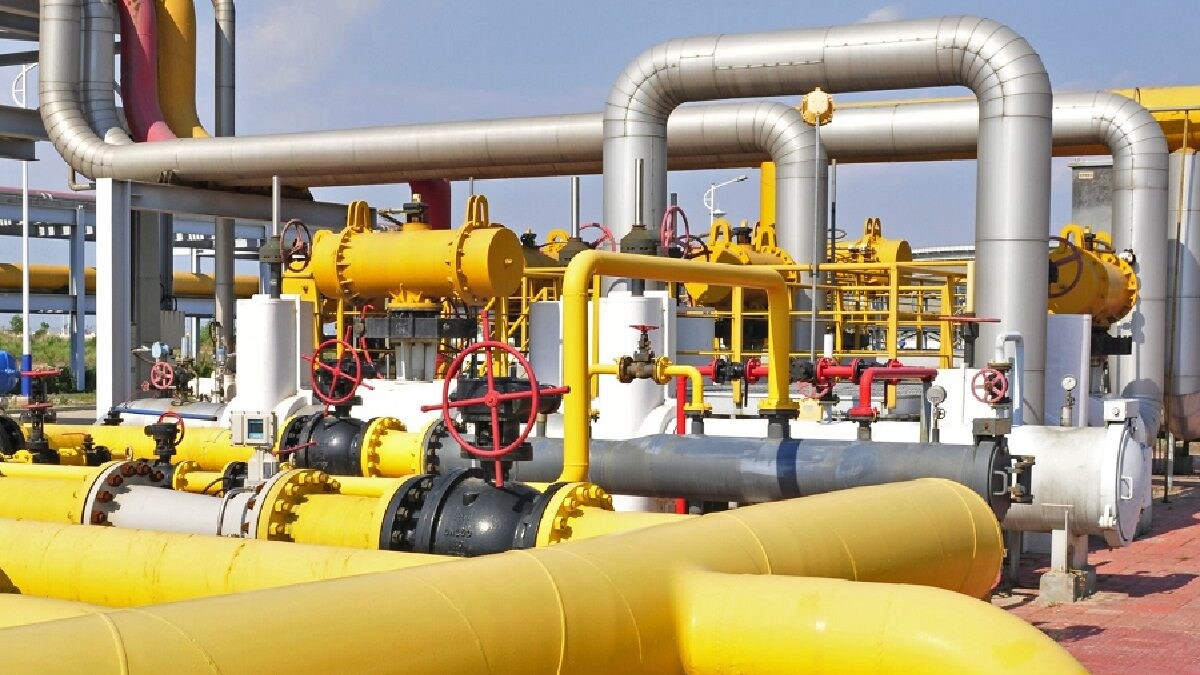 |
|
The Indian city gas distribution (CGD) sector is grappling with a significant blow after the government implemented a 20 percent reduction in Administered Price Mechanism (APM) allocation of domestically produced natural gas for the second consecutive month. This drastic cut has sent shockwaves through the market, causing shares of prominent CGD companies like Indraprastha Gas Limited (IGL) and Mahanagar Gas Limited (MGL) to plummet by approximately 20 percent in a single morning trading session on November 18, 2024. The impact extends beyond IGL and MGL, with Gujarat Gas also experiencing a notable decline in its share price.
The cumulative effect of these gas allocation cuts is severe. IGL, for instance, has experienced a total reduction of approximately 41 percent in its domestic gas supply since October 16th, 2024. MGL's situation is equally dire, with a combined reduction of around 39 percent. Adani Total Gas has also reported a substantial 13 percent cut. These reductions directly impact the companies' ability to produce and supply Compressed Natural Gas (CNG) to automobiles and piped cooking gas to households. The government's decision to prioritize other sectors over CNG supply has created a crisis situation.
The rationale behind the government's decision is rooted in the dwindling production of domestically sourced natural gas. Production from legacy fields, the primary source of gas for CGD companies, has been steadily declining at a rate of up to 5 percent annually due to natural depletion. This shrinking supply has forced the government to make difficult choices regarding resource allocation. While the supply of piped cooking gas for households remains relatively protected, the CNG sector has borne the brunt of the cuts. The proportion of CNG demand met by domestic gas has plummeted from 90 percent in May 2023 to a mere 50.75 percent by the beginning of October, and now significantly less. This shortage necessitates the use of imported liquefied natural gas (LNG), which is approximately twice as expensive as domestic gas.
The consequences of this reliance on imported LNG are far-reaching. CGD companies face a stark choice: absorb the increased costs, leading to substantial profit margin erosion, or pass these costs onto consumers through CNG price increases. Sources suggest that a price hike of Rs 4-6 per kg could become necessary to offset the rising input costs. However, as of the publication of this article, retailers are holding off on price increases while engaging with the Ministry of Petroleum and Natural Gas to seek a solution. This delay further exacerbates the financial pressure on the CGD companies.
The sharp and unexpected cuts in gas allocation have elicited strong reactions from financial analysts and brokerage firms. Several brokerages have expressed concern over the lack of policy communication accompanying the cuts, viewing this opacity as a particularly negative signal for the CGD sector. The previously anticipated, more moderate tapering of gas reductions did not materialize, leaving companies scrambling to adapt. The steep fall in share prices underscores the gravity of the situation, with Emkay Global highlighting the deteriorated margin outlook for CGD companies and the absence of a clear plan of action. Nuvama Institutional Equities predicts a substantial 43-63 percent hit to EBITDA in FY26 for CGD companies if price hikes fail to materialize. Consequently, both domestic and international brokerages such as Jefferies have issued downgrades on IGL and MGL shares, slashing their target prices and EPS estimates, reflecting a pessimistic outlook for the sector's short-term prospects.
The crisis in the Indian CGD sector underscores the intricate challenges of balancing energy security with economic stability. The decreasing domestic gas production and the resulting supply cuts pose a significant threat to the financial health of CGD companies, and ultimately to the consumers who rely on CNG for transportation and cooking fuel. The government's response to this situation will be crucial in determining the long-term future of this vital sector. The upcoming discussions between the Ministry of Petroleum and Natural Gas and the affected companies will be crucial in shaping the near-term trajectory of CNG prices and the overall stability of the industry. The lack of clear policy communication adds uncertainty, which is rarely beneficial for investor confidence in the energy sector. The next few months will be critical in observing how the government manages this energy crisis and the extent to which it can mitigate the adverse impact on the affected companies and consumers.
Source: IGL, MGL Shares Plunge 20% As City Gas Distribution Sector Faces Cuts In Priority Gas Allocation
